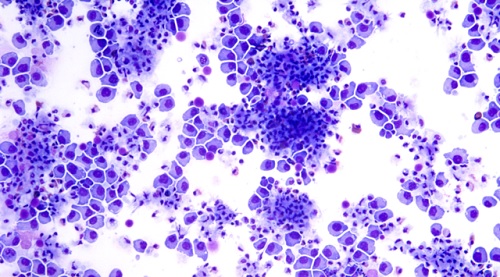N.B. Nair
Thiruvananthapuram, Kerala (ISJ): An Indian medical research lab has developed a technique to detect cancer cells circulating in blood stream. The new technology-based kit developed by scientists at the Thiruvananthapuram-based Sree Chitra Tirunal Institute for Medical Sciences and Technology, helps detect highly rare cancer cells circulating in blood stream, using a robust custom-made centrifugal prototype.
The technology involves a non-invasive blood test blood test to ascertain whether the cancer has a tendency to spread to other parts of the body, while treating a patient.
“It is an easy and fast test, proven highly sensitive and selective towards the rapid isolation of cancer cells up to 5 cells/mL from whole blood without any sample pre-treatment. There are not many systems available for this purpose worldwide,” Dr R.S. Jayasree, Scientist and Head of Biophotonics and Imaging Division at Sree Chitra Tirunal Institute of Medical Sciences and Technology told Indian Science Journal.
Dr Jayasree said, the technology utilizes dual method of gold-graphene nanotag and circulating tumor cell antibody to separate the blood cells, and capture the tumor cells selectively on a filter.
The results of the experimental study were published in the journal ACS Sustainable Chemistry and Engineering. Dr Jibin and Er Ramesh Babu were also part of the team that carried out the study.
Although, cancer is considered a localized disease in its premature stages, in certain types of cells, it results in metastasis, which accounts for over 90 percent of the total cancer deaths in the world. During the metastatic stage, cancer cells migrate from the primary tumor site to secondary sites through the circulating bloodstream. This situation makes it critical to identify and quantify the circulating tumor cells (CTCs) during its formative stages.
Compared to most of the immunoaffinity-based CTC isolation platforms, the current centrifugal force-based nanotag-enabled lab-on-a-filter system proved to be clog free, highly sensitive and selective towards rapid isolation of viable CTCs from the whole blood without sample pre-treatment.
India reported a total of 13.32 lakh cases of cancer during 2012-19, according to National Cancer Registry. But a study carried out by a team of researchers headed by Dr Aju Mathew, Kochi-based oncologist, shows a much higher caseload. There were 13 lakh new cancer cases in 2020 and the mortality was 8.5 lakhs according to the study published in the journal The Lancet.
Representational Image, courtesy: Wikimedia Commons


